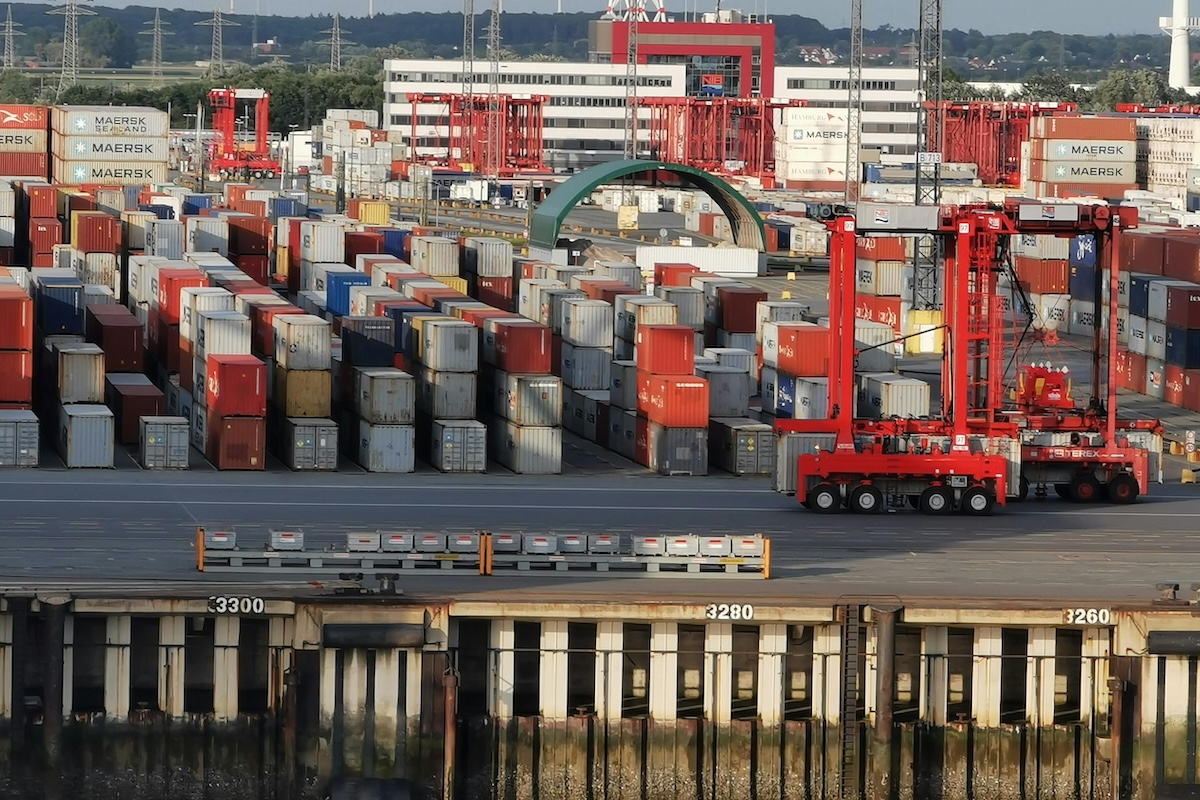EAR99 Explained: Understanding Its Importance in U.S. Export Controls

Article Summary
EAR99 is a designation referring to items controlled under Export Administration Regulations (EAR) that are not listed on the Commerce Control List (CCL). Items designated EAR99 generally do not require an export license however there are some exceptions.
EAR99 items typically include low-tech consumer goods and services.
Generally, no export license is required unless the items are being exported to sanctioned or embargoed countries, restricted entities, or for prohibited end uses.
The U.S. Department of Commerce, specifically the Bureau of Industry and Security (BIS), oversees items designated EAR99 under the EAR.
An Export Control Classification Number (ECCN) is a five-character alphanumeric code assigned to items specifically listed on the CCL and may require a license, while EAR99 items are not listed on the CCL and usually do not require a license.
Yes, if the items are destined for sanctioned or embargoed countries, restricted entities, or involve prohibited end uses.
The term EAR99 indicates that an item (such as a physical product, software, or technology) has been subjected to export classification analysis and subsequently accorded the lowest level of concern. Critically, items designated as EAR99 can be exported under the No License Required (NLR) authorization to all countries except those subject to comprehensive sanctions or embargo (e.g., Cuba, Iran, North Korea, Syria, among others).
Understanding EAR99: Exploring the Commerce Control List
The Commerce Control List (CCL), contained within the Export Administration Regulations (EAR), identifies commercial items that may require an export license prior to export. The CCL is divided into ten categories labelled 0 through 9 and five product groups from A to E. The CCL then further identifies five-character, alphanumeric codes called Export Control Classification Numbers (ECCNs). The first character in an ECCN is a number representing the category, the second character is a letter indicating the product group and the following 3 digits indicate a numbering system that enables greater specificity. The notable exception which does not appear on the CCL is an EAR99 designation, which is a bucket category for all those items that are not described in any ECCN on the CCL and thus have this designation that signals the lowest level of concern.
The Sequence of Export Classification Resulting in EAR99 Determinations
Export classification is the systematic analysis that determines whether an item (physical product/part, software, technology, or service) is subject to U.S. export control laws and regulations. Following the “Order of Review,” you first compare the item against the relevant sections of the U.S. Munitions List (USML) under the International Traffic in Arms Regulations (ITAR). If your item is not described on the USML, you look next to the pertinent parts of the CCL under the Export Administration Regulations (EAR). If the item is also not described in an ECCN on the CCL, it receives the lowest level designation, denoted as EAR99. This is an important determination since it dramatically simplifies export compliance requirements.
Want to determine whether your item is designated EAR99? Contact CTP today for assistance with export classification.

How EAR99 Items Are Treated in SNAP-R
SNAP-R is the electronic licensing system that is administered by the Bureau of Industry and Security (BIS) at the Department of Commerce. Once a company sets up its account, it can use SNAP-R to apply for and manage its export licenses for dual-use items subject to the EAR. The critical aspect of an EAR99 designation is that in most cases, the item can be exported under the "No License Required" (NLR) authorization. It doesn’t remove all restrictions, but NLR is a significant simplification for exporters.
Assessing Destinations and Compliance: The Impact on EAR99 Classifications Beyond EAR99:
While an EAR99 classification provides the accompanying designation of NLR, that is, No License Required, it doesn’t remove all possible restrictions. It is important to consider the ultimate destination of the export, as well as the identified end user, which could present obstacles in the form of sanctions, embargoes, and denied party designations. While export controls focus mostly on the items/products being exported, there are equally serious considerations about the countries, the companies, and the individuals involved in transactions. Sanctions, embargoes, and denied parties are increasingly prevalent in recent years, forcing companies to screen all the stakeholders to their transactions to avoid inadvertent compliance violations.
Utilizing EAR99 Classifications for Global Trade Success
Understanding the EAR99 classification is pivotal for companies engaged in global trade, as it determines whether goods, software, and technology can be exported without extensive licensing requirements and possible delays. It doesn’t remove restricted party screening requirements, but the EAR99 designation still conveys a significant benefit. Navigating these complications requires experience and a deep understanding of U.S. export control laws and regulations.
Need assistance with classifications, screening, or other export control challenges? Contact CTP today for expert guidance to streamline your compliance processes and enhance your global trade operations.
Key Points
What does EAR99 mean?
- EAR99 refers to items that are subject to the Export Administration Regulations (EAR) but are not specifically listed on the Commerce Control List (CCL).
- These items are generally less restricted and do not require an export license unless specific circumstances apply.
What types of items are classified as EAR99?
Items classified as EAR99 are typically:
- Low-technology consumer goods
- Everyday products that do not have significant military or strategic applications
Do EAR99 items require an export license?
In most cases, no license is required for EAR99 items. However, exceptions exist if the items are being exported to:
- Embargoed countries (e.g., Cuba, Syria, North Korea, Iran, and others)
- Restricted entities
- Prohibited end-uses, such as military applications
Who oversees EAR99 compliance?
The Bureau of Industry and Security (BIS), a division of the U.S. Department of Commerce, is responsible for overseeing items designated EAR99.
What is the difference between ECCN and EAR99?
ECCN (Export Control Classification Number):
- Used for items listed on the Commodity Control List (CCL).
- May require an export license depending on the destination, end user and end use.
EAR99:
- Refers to items not listed on the CCL.
- Generally less restricted and license-free unless exceptions apply.
Can a license be required for EAR99 items?
Yes, EAR99 items may require a license if they are being exported to:
- Embargoed countries (e.g., Cuba, Syria, North Korea, Iran, and others)
- Restricted entities
- Prohibited end-uses, such as the development of weapons of mass destruction










